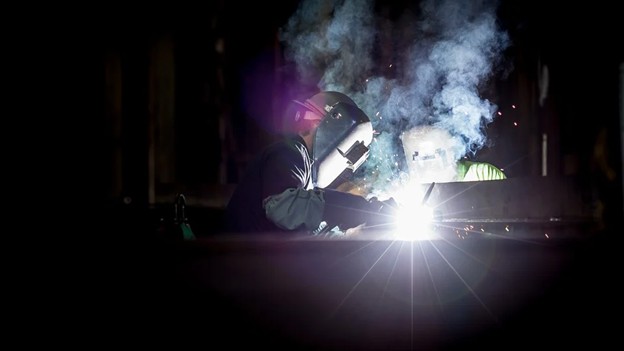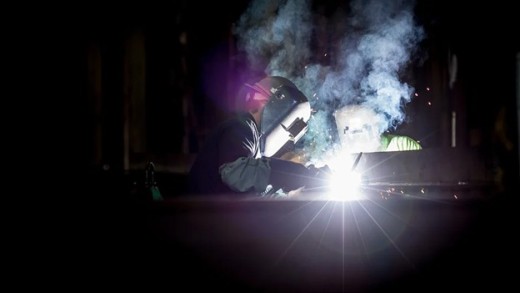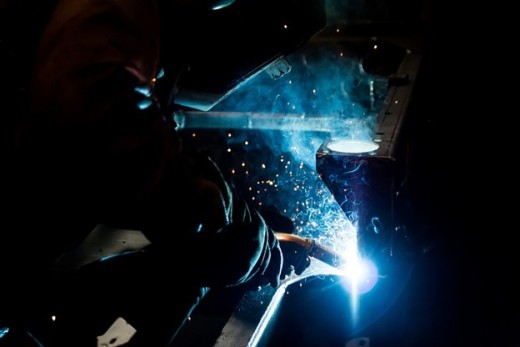6 things you didn’t know about welding guide, Industrial weld fabrication advice
6 Things You Didn’t Know About Welding
8 January 2022
Welding is a major industry that few people know much about. In this article, you will learn about certain little-known facts that you probably did not know about welding!
Porosity Is Your Enemy
If you’re not doing it right, welding can cause certain problems that are hard to get rid of. When you use contaminated materials or have mechanical problems, porosity causes holes in the weld, which makes it weak. It’s a little-known fact that porosity is your enemy when welding, so be sure to take care of the little things, and you’ll have better welds!
Porosity is problematic because it can create weak points in the weld. It’s something a lot of people forget to check for, but porosity is easily preventable! If you’re having problems with porosity, it’s likely that your weld isn’t as strong as it could be. Make sure to take care of the small things, and you’ll have better welds!
To avoid porosity in your welding, keep an eye out for contamination in the material being used. If you leave contaminants on the surface of your metal, it can cause porosity issues later down the line! Make sure to have a clean working area with high-quality materials, and everything should be fine.
To avoid porosity when welding, make sure that there are no mechanical problems knocking around in your machine or equipment. A lot of things can go wrong when you’re dealing with machinery, so make sure nothing will mess up porosity while you weld!
Welding Is The Backbone Of The Construction Industry
Welding is one of the most important aspects of the construction industry. It’s the backbone that holds everything together! Without welders, the construction industry would come crumbling down.
Welding is such an important part of the construction industry because it allows us to join metals together in order to create something new. It’s a process that has been around for centuries, and it’s not going away any time soon!
Whenever there’s a need for the backbone of the construction industry, you can expect a welder to be there. It’s something that takes years and years of practice in order for it to become good enough for the job, but once someone has the skills they need, there’s nothing stopping them!
The next time you’re at a job site, take a look at the welding being done and think about how much work goes into making it happen. Welders are an essential part of the construction process, and we should be grateful for all they do!
There Are Different Types Of Welding
There are indeed different types of welding, and each has its own specific uses. Some are more common than others, but they all have unique properties that can make them the best option for certain applications.
- Arc welding is probably the most well-known. It uses an electric arc to create heat, which then melts the metal and joins it together. Arc welding is generally used for thinner metals, and it’s a fairly quick process.
- Gas welding relies on a flame to join metals together. This method is slower than arc welding but can be used with thicker metals. Gas welding requires specialized equipment, so it’s not as commonly used as other types of welding.
- Resistance welding works by using a different form of heat – namely, it uses electricity to create heat. This method is also known as spot welding and can be used on a variety of different metals. It’s not particularly common, but it can sometimes be seen in automotive applications.
- In flux-cored welding, the filler material comes from an outside source instead of being manually added into the mix. The process relies on gas-shielded wires that are fed through a gun where they’re then surrounded with shielding gas before hitting the metal itself.
- Submerged arc welding is one of the most commonly used methods today. It’s especially popular in heavy-duty applications where thicker metals need to be welded together.
- MIG welding, or Metal Inert Gas welding, uses a wire that’s fed through a gun. The wire itself melts and joins with the metal, and an inert gas protects the weld from contamination. MIG welding is a popular method, and it’s often used in automated processes.
It Requires Skill And Precision
It may not look like it, but welding requires a lot of skill and precision. In fact, even the slightest miscalculation can result in a faulty weld. This is why welding is often considered an art form, it takes years of practice to be able to produce high-quality welds consistently.
Welding also requires a good understanding of how different materials interact with each other. For example, if you’re welding two pieces of metal together, you need to know which metals will create the strongest bond and which ones are likely to corrode.
Precision is key when welding. Any movement from your hands or body can cause the weld bead to become crooked, leading to a weak joint. That’s why it’s so important to maintain focus and keep your movements deliberate while welding.
It Also Requires Math Skills
This job also requires certain math skills, especially when it comes to arc welding. A welder has to be able to calculate the length of time an electrode lasts before requiring replacement, which might vary depending on the material being welded and how much current is used during application.
Some companies also require their employees to pass math exams as part of a training program for new positions or certifications, like AWS CWI certification (welding consultant).
It’s A Profitable Profession
Welding is indeed a very profitable profession. In fact, it is one of the highest-paying trades in the world. The average welder salary is around $50,000 per year. However, welders with more experience and skills can earn up to $100,000 or more annually. So if you’re looking for a high-paying trade that’s in demand, welding is a great option.
There are many reasons for welding’s high salary potential. First, welders are in high demand due to the increasing popularity of metal fabrication and welding-related products. Second, welders have a wide range of skills and can work in many different industries. And finally, welders can often command higher salaries because their services are in short supply. So if you’re looking for a profitable profession with plenty of opportunities, welding is a great choice!
6 Things You Didn’t Know About Welding Summary
Welding is a highly-valued profession where you need to be careful not to get porosity. It’s considered the backbone of the construction industry and there are many different types. It requires skill and precision, as well as knowledge of math and blueprints. All these things make welding a profitable and lucrative profession.
Comments on this guide to 6 things you didn’t know about welding article are welcome.
Edinburgh Architecture
Scottish Widows, financial district, west of Lothian Road
Scottish Widows
Scott Monument
Scott Monument
Comments on this 6 things you didn’t know about welding article are welcome.



